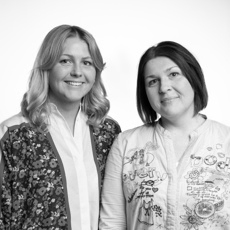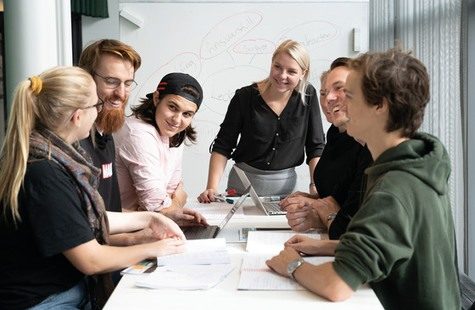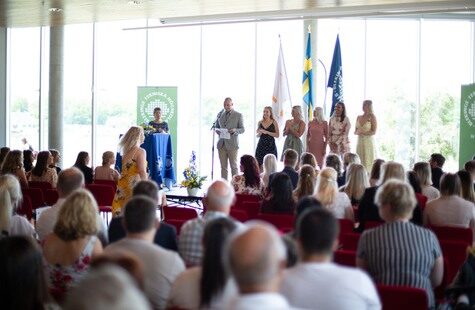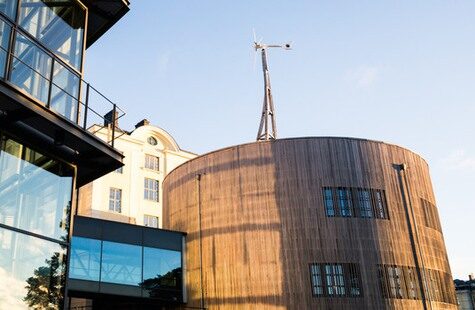Master’s Programme in Software Engineering
120 credits
- Period : 2025-September-01 until 2027-June-06
- Location: Campus Karlskrona
- Type of instruction: On campus, day-time, full-time
- Application code: BTH-90601
- Language of instruction: English
- Programme syllabus: Download
Follow your curiosity and ongoing development by acquiring a degree that gives you knowledge in software engineering. With a Master’s degree, you get better opportunities to choose different professional fields and tasks in the future.
This Master’s programme provided you with the skills needed to work as a software engineer or software architect in world-leading companies or as a leader of development teams in software development. The programme also includes research preparation courses in the field of software engineering.
Analyse, adapt and apply
This programme provides you with the knowledge needed to develop software for future products and services where high demand is on efficiency and quality. You will also learn to build and test software products that use modern technology and how to improve development processes.
Build your competence – from beginning to end
The courses in the programme range from early planning with requirements gathering to final implementation, testing and introduction. In this way, you get a holistic view of the complex process that software development entails. You gain knowledge and experience in technology and work methodology and familiarise yourself with modern development processes and how to constantly improve them.
Please contact the Admissions Office with any questions regarding the entry requirements.
The programme consists of 120 credits and leads to a two-year Master’s degree.
The tuition fee is SEK 70,000 per semester. One semester corresponds to 30 ECTS credits. EU/EEA citizens are not required to pay fees.
BTH offers a scholarship programme for both prospective students and current students. If you are a female citizen of one of ten eligible countries and you apply for this program as your first choice, you can also apply for the Swedish Institute Scholarship Pioneering Women in STEM for prospective students. Learn more about scholarships.
Do you have any questions about the programme? Please send them to us using the form on the International Student Guide.

Programme manager Mikael and the student Inshal share their views on the programme. (3:08)

Programme content
Software engineering
Elective courses
Engineering and research methodology
Create software that meets future challenges – from start to finish
The programme deals with the complex challenges facing the software developers of the future and prepares you to develop software that solves these problems, where the software works with other new technologies.
You learn how to construct and test software products to meet the challenges of tomorrow, with high demands on efficiency and quality. You also learn how to reflect upon and improve modern development processes. Furthermore, you acquire a wide understanding and base of knowledge through education and training in advanced concepts within software engineering, covering the entire development process.
The education provides you with the skills and knowledge required to engineer software systems from the initial planning and scoping of projects to the process of development, testing and delivery of the software system itself to final implementation, testing and introduction. The courses cover engineering and working methodology, and you will study subjects such as project planning, software quality, and research methodology.
Note! The course list is tentative. See the programme syllabus for an established course list.
Courses autumn semester 2025
Requirements Engineering and Product Management, 7,5 hp
Software Architectures and Quality, 7,5 hp
Seminar Series in Software Engineering, 7,5 hp
Agile and Lean Software Development, 7,5 hp
Courses spring semester 2026
Software Testing, 7,5 hp
Research Methodologies in Software Engineering and Computer Science, 7,5 hp
Software Metrics, 7,5 hp
Social Sustainability in Product- and Service Development, 7,5 hp *
Mathematical Statistics, 7,5 hp *
Decision Support Systems, 7,5 hp *
* Valbar kurs
Courses autumn semester 2026
Performance Optimization, 7,5 hp *
Applied Cloud Computing and Big Data, 7,5 hp *
Applied Artificial Intelligence, 7,5 hp *
Software Evolution and Maintenance Project, 7,5 hp
Software Quality Management, 7,5 hp
Advanced Topic in Software Engineering, 7,5 hp
* Valbar kurs
Courses spring semester 2027
Master's Thesis (120 credits) in Software Engineering, 30 hp
Students who apply for a course or programme, and meet the general and specific entry requirements, compete with one another for available places. When there are more qualified applicants than there are places for an education, the places are distributed through a selection. Read about the selection methods and procedure here.
The study programmes at BTH are continuously monitored and developed through yearly follow-up dialogues, course evaluations after each completed course, and programme evaluations. Results from follow-ups and evaluations can lead to changes in the programmes. These changes are always communicated to the students.
Each educational programme is tied to an advisory board that discusses issues such as the quality of the programme, its development, and relevance for the labour market. In the advisory board, or a committee to the advisory board, teachers, external members, students and alumni are represented.
The programme is focused on the software development process currently used in industry and practical knowledge that software engineers need today.
Muhammad
Student, Master’s Programme in Software Engineering
Research

BTH is one of the highest ranked universities in the world in the research area applied software engineering. The focus of the work is to develop software that helps companies become more competitive. This Master’s programme is strongly linked to that research.
Ericsson Space Lab

As a student within the programme, you will get access to Ericsson Space Lab (2:26)
Good to know
Look below for information about how to apply, entry requirements and important dates.
Similar programs
Programmes
MBA programme, 60 credits
Programme, Second cycle Autumn-25
Master's Programme in Computer Science, 120 credits
Programme, Second cycle Autumn-25
Master's Programme in Mechanical Engineering - Structural Mechanics, 120 credits
Programme, Second cycle Autumn-25
Master's Programme in Software Engineering, 120 credits
Programme, Second cycle Autumn-25
Master's Programme in Strategic Leadership towards Sustainability, 60 credits
Programme, Second cycle Autumn-25
Master's Programme in Telecommunication Systems, 120 credits
Programme, Second cycle Autumn-25
Master’s programme in AI and Machine Learning, 120 credits
Programme, Second cycle Autumn-25
Master’s programme in Machine Learning, Sensors and Systems, 120 credits
Programme, Second cycle Autumn-25
Courses
Adaptive Lean Software Testing, 7.5 credits
Course, Second cycle Spring-25
Applied generative AI, 6 credits
Course, First cycle Spring-25
Behaviour Change for Sustainability, 7.5 credits
Course, First cycle Spring-25
Digital Twin and Industry 4.0, 5 credits
Course, Second cycle Spring-25
Energy and transport transitions and planning, 7.5 credits
Course, Second cycle Spring-25
Introduction to Security in the Software Development Lifecycle, 6 credits
Course, Second cycle Spring-25
Introduction to Visual Data Analytics, 7.5 credits
Course, First cycle Spring-25
Introduction to hybrid radar and camera system, 6 credits
Course, Second cycle Spring-25
Machine Learning Engineering, 6 credits
Course, Second cycle Spring-25
Operating System Security Hardening, 3.5 credits
Course, Second cycle Spring-25
Pattern recognition in hybrid radar and camera system, 6 credits
Course, Second cycle Spring-25
Planning and governance for sustainable development, 7.5 credits
Course, Second cycle Spring-25
Process Simulation for Industry 4.0, 5 credits
Course, Second cycle Spring-25
Process and Project Management, 7.5 credits
Course, First cycle Spring-25
Product and Requirements Management for Digital Environments, 7.5 credits
Course, Second cycle Spring-25
Product management, 7.5 credits
Course, First cycle Spring-25
Secure Software Architecture, 6 credits
Course, Second cycle Spring-25
Security, Privacy and Compliance, 7.5 credits
Course, Second cycle Spring-25
Social Sustainability in Product- and Service Development, 7.5 credits
Course, Second cycle Spring-25
Visualisation, 7.5 credits
Course, First cycle Spring-25
Advanced Digital Forensics, 7.5 credits
Course, Second cycle Autumn-25
Agile and Lean Development of Software Intensive Products, 7.5 credits
Course, Second cycle Autumn-25
Applied Cloud Computing and Big Data, 7.5 credits
Course, Second cycle Autumn-25
Current sustainability challenges and planning, 7.5 credits
Course, Second cycle Autumn-25
Future Tech: Navigating Tomorrow's Technologies, 2 credits
Course, First cycle Autumn-25
Introduction to Strategic Sustainable Development, 3 credits
Course, Second cycle Autumn-25
Malware Analysis, 7.5 credits
Course, Second cycle Autumn-25
Support portfolio for strategic sustainable development, 7.5 credits
Course, Second cycle Spring-25
Multidisciplinary approaches in sustainability studies, 7.5 credits
Course, Second cycle Autumn-25
Needfinding and Invention for Organizational Change, 2 credits
Course, First cycle Autumn-25
Sustainable product development, 7.5 credits
Course, Second cycle Autumn-25
Course package
Specialized courses in Industrial Economics and Management 30 HP Full-time
Course package, First cycle Spring-25
Introduction to Business Analytics 12 HP Forty percent
Course package, Second cycle Autumn-25







